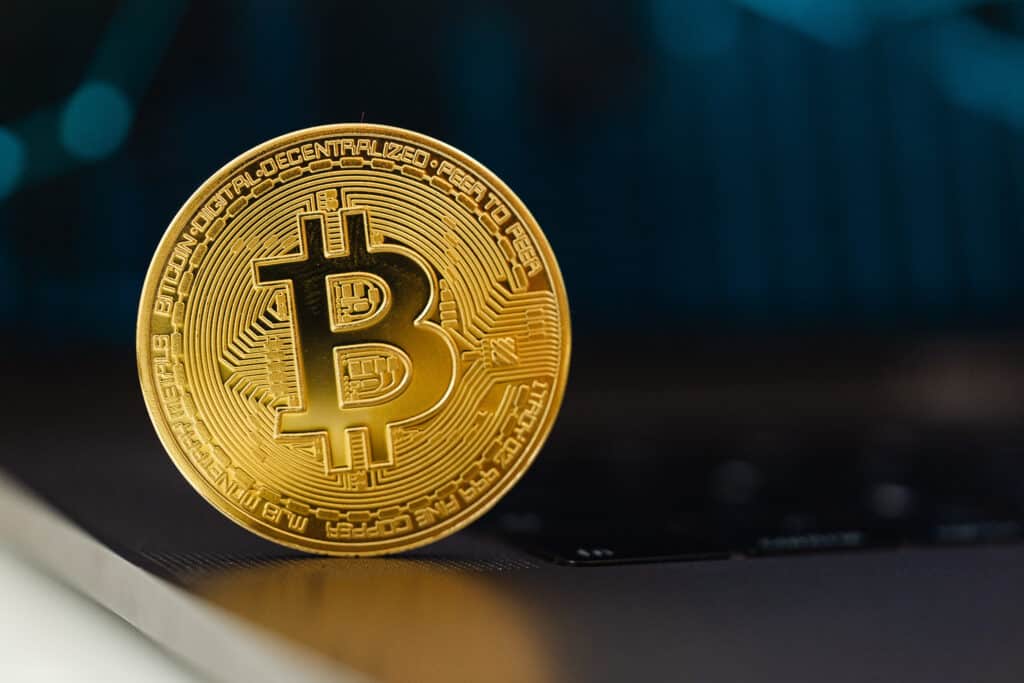In this comprehensive guide, we will delve into the fascinating world of cryptocurrency and provide a beginner’s understanding of Bitcoin. As one of the most popular and widely recognized digital currencies.
Whether you’re a novice or someone seeking to expand your knowledge, this article will equip you with the fundamental concepts surrounding Bitcoin.
In addition, to ensure safety while investing in Bitcoin, make sure you have a reputable trading platform to use such as Granimator app. So, let’s dive in!
IMAGE: PEXELS
What Is Bitcoin?
Bitcoin, introduced in 2009 by an anonymous person or group using the pseudonym Satoshi Nakamoto, is a decentralized digital currency. Unlike traditional fiat currencies, such as the US Dollar or Euro, Bitcoin operates on a peer-to-peer network without the need for intermediaries like banks or governments. However, Bitcoin can be converted into various currencies. That’s why it’s important to know conversion rates, like the BTC price CAD.
It utilizes cutting-edge technology known as blockchain, which ensures transparency, security, and immutability of transactions.
The Blockchain Technology
The foundation of Bitcoin’s innovation lies in blockchain technology. A blockchain is a decentralized and distributed digital ledger that records all Bitcoin transactions across a network of computers. Each transaction is grouped into a block, which is added to the chain in a sequential and permanent manner.
The blockchain serves as a public record, allowing anyone to verify transactions and ensuring the integrity of the system.
How Does Bitcoin Work?
Wallets And Addresses
To interact with Bitcoin, users need a digital wallet. A wallet is a software application that enables users to store, send, and receive Bitcoin securely. Each wallet has a unique address, similar to a bank account number, which serves as the destination for transactions.
Bitcoin addresses consist of a string of alphanumeric characters and are designed to protect the privacy and anonymity of users.
Transactions And Mining
Bitcoin transactions involve the transfer of value from one wallet address to another. When a transaction occurs, it is broadcasted to the network, where miners validate and group it with other transactions into a block.
Miners, individuals or groups with specialized hardware, compete to solve complex mathematical puzzles to add the block to the blockchain. This process, known as mining, provides security to the network and incentivizes participants with newly minted Bitcoins.
Supply And Halving
Unlike traditional currencies, Bitcoin has a finite supply. The total number of Bitcoins that will ever exist is capped at 21 million. This limited supply is achieved through a predetermined issuance schedule.
Approximately every four years, an event called the “halving” occurs, reducing the rate at which new Bitcoins enter circulation. This feature helps to control inflation and maintain the scarcity and value of Bitcoin.
Advantages Of Bitcoin
Decentralization And Financial Freedom
Bitcoin’s decentralized nature eliminates the need for intermediaries, such as banks, enabling individuals to have direct control over their finances. Users can send and receive Bitcoin globally without relying on traditional financial institutions, reducing transaction fees and processing delays.
Additionally, Bitcoin provides financial inclusivity, allowing access to financial services for the unbanked and underbanked populations worldwide.
Security And Privacy
Bitcoin transactions are highly secure due to the cryptographic algorithms employed within the blockchain. The use of public and private keys ensures that only the rightful owner of the Bitcoin can access and transfer their funds.
Moreover, Bitcoin offers pseudonymity, as transactions are recorded on the blockchain without revealing personal information. This aspect provides users with a level of privacy not present in traditional banking systems.
Global Accessibility And Borderless Transactions
Bitcoin transcends geographical boundaries, enabling individuals to send and receive funds internationally without the need for currency conversions or intermediaries. This feature is particularly advantageous for remittances and cross-border commerce, as it eliminates costly fees and reduces transaction times.
Bitcoin’s borderless nature empowers individuals and facilitates seamless financial interactions on a global scale.
Risks And Challenges
While Bitcoin offers numerous advantages, it’s essential to be aware of the risks and challenges associated with its use.
Volatility
Bitcoin is known for its price volatility, which can lead to substantial fluctuations in its value. The market is influenced by various factors, including demand, investor sentiment, regulatory changes, and macroeconomic events.
As a result, the value of Bitcoin can experience significant ups and downs, making it a potentially risky investment.
Security Concerns
While Bitcoin itself is secure, the same cannot always be said for the platforms and services surrounding it. Hacking incidents, phishing attacks, and scams targeting Bitcoin users and exchanges have occurred in the past.
It’s crucial to exercise caution, employ robust security measures, and choose reputable platforms when dealing with Bitcoin.
Regulatory Environment
The regulatory landscape for cryptocurrencies, including Bitcoin, is still evolving in many jurisdictions. Governments and financial authorities worldwide are developing frameworks to address the challenges posed by digital currencies. These regulations aim to ensure consumer protection, prevent money laundering, and maintain financial stability.
Staying informed about the legal and regulatory requirements in your country is important when engaging with Bitcoin.
Getting Started With Bitcoin
Now that you have a basic understanding of Bitcoin, you may be wondering how to get started. Here are the key steps to embark on your Bitcoin journey:
Step 1: Obtain A Bitcoin Wallet
Choose a reputable Bitcoin wallet provider that suits your needs. There are various options available, including desktop wallets, mobile wallets, web wallets, and hardware wallets. Research the features, security measures, and user reviews to make an informed decision.
Step 2: Secure Your Wallet
Once you have a Bitcoin wallet, it’s crucial to secure it properly. Enable two-factor authentication, use a strong and unique password, and consider backup options like writing down your seed phrase or keeping it in a secure location. Taking these precautions will help protect your funds from unauthorized access.
Step 3: Acquire Bitcoin
There are several ways to acquire Bitcoin. You can purchase it from cryptocurrency exchanges, peer-to-peer trading platforms, or Bitcoin ATMs. Some exchanges may require a verification process to comply with regulatory requirements. Choose a reputable platform with competitive fees and a user-friendly interface.
Step 4: Educate Yourself
Expand your knowledge about Bitcoin by exploring educational resources, articles, and reputable cryptocurrency websites. Stay updated with the latest news and developments in the crypto space. Understanding the market trends, technological advancements, and potential risks will empower you to make informed decisions.
Step 5: Start Transacting
Once you have Bitcoin in your wallet, you can start transacting with it. Explore merchants and online platforms that accept Bitcoin as a payment method. You can also send Bitcoin to friends, family, or businesses that have Bitcoin addresses.
Remember to double-check the recipient’s address to avoid any errors or loss of funds.
Conclusion
Congratulations! You now have a solid understanding of Bitcoin and its fundamentals. This beginner’s guide has provided insights into the world of cryptocurrency, the workings of Bitcoin, its advantages, risks, and the steps to get started.
Remember to conduct further research, stay informed, and exercise caution when engaging with Bitcoin or any other digital asset. Embrace the opportunities that Bitcoin offers, and may your journey into the world of cryptocurrency be rewarding and successful!
Disclaimer: The above references an opinion of the author and is for information purposes only. It is not intended to be investment advice. Seek a duly licensed professional for investment advice. Invest responsibly and never invest more than you can afford to lose.
IMAGE: PEXELS
If you are interested in even more business-related articles and information from us here at Bit Rebels, then we have a lot to choose from.


COMMENTS